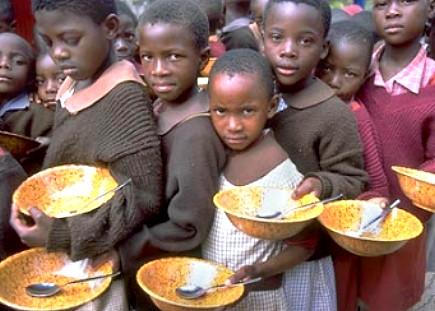In a greenhouse here at the University of Maryland, researchers are growing the next generation of wheat. Their goal is to help Maryland farmers deal with a disease that claimed(使失踪或死亡) half their wheat crop last year. Researcher Hosie Costa leads the effort. "We're looking here at healthy seed, and then scabby(结痂的) seed."
Wheat scab is a fungus(真菌) that turns the grains white...and poisonous.
"It causes vomiting(呕吐) in humans. So, we don't really want that in our bread or cookies."
But just like some people don't get as sick as others, Costa says some wheat varieties are less likely to get scab(痂). "One of them is from China. Ning 7840 that has scab resistance(抵抗力)."
The challenge, Costa says, is to mate(交配) a local wheat variety that produces a lot of grain with the Chinese variety that's resistant to scab - but doesn't produce as much. "The odds(可能性,机会) are about one or two plants in a thousand that they will carry the right combination(结合) of genes(基因)."
Scientists are mapping(绘制) the entire genetic code of wheat. They've already figured out the location of some of the key genes, including those for scab resistance and productivity(生产力). And to locate them quickly, they've found small stretches of DNA called markers, says graduate student Lydia Cardwell. "Just like in real life you would use a landmark when you give directions, we use markers."
Scientists mate the wheat plant from Maryland with the one from China by cross pollinating(传授花粉) them.
Until recently, they relied on big test fields like this one to find that one-in-a-thousand plant that was both resistant and productive(多产的).
Now, they grow the plants in a room-sized incubator(恒温箱).
They extract the genetic material from a small piece of each offspring(后代) and look for the markers. That way they can identify the offspring they're looking for.
Costa says out in the field, some plants just get lucky and escape infection(感染). "With markers, now we can tell if they do have the genes or not."
Costa says with the challenges facing farmers - climate change, population growth, and the never-ending battle with pests(害虫) and disease - he'll need all the help he can get. "It's the best we can do at this time. But it gives us a lot more weapons than what we had before."
Costa hopes those same weapons will allow researchers around the world to ward off(挡开) the looming(隐约的,阴森逼近的) threat of hunger.


